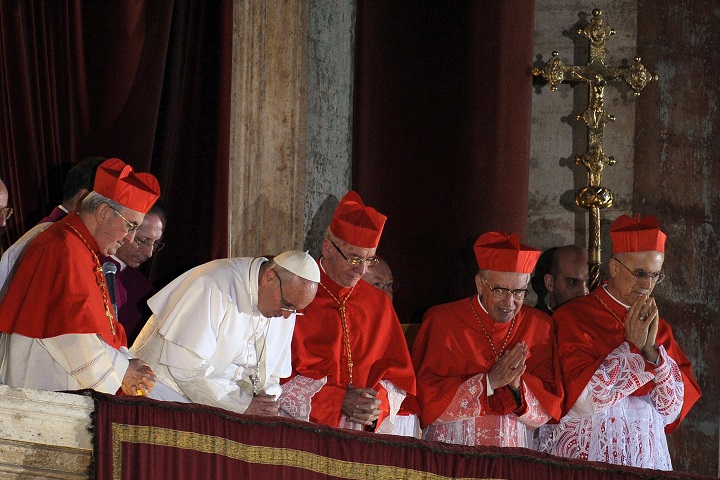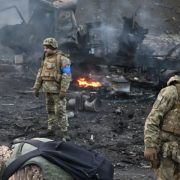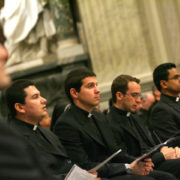
Argentinian Cardinal Jorge Mario Bergoglio prays from a balcony of St Peter’s Basilica after his election as the 266th Pope of the Roman Catholic Church on March 13, 2013 at the Vatican. ANSA/ETTORE FERRARI
It seems being yesterday, but five years are gone since the election of Jose Maria Bergoglio to bishop of Rome (as he referred to himself that night). Many of us sensed immediately the possibility of a new era for the Catholic Church. It didn’t take so much time for the rise of an oppositional coalescence both in the Roman Curia and in local Churches. The divide within the Catholic Church, that was kept silent for over forty years under John Paul II and Benedict XVI, became rapidly and dramatically evident.
Different visions of the Catholic Church, different understandings of Catholicism in a global and broken age, were for the first time on the same table. On both sides we missed the opportunity, given to all Catholics by pope Francis, to deal with each other, to talk with each other, and above all to listen carefully to the reasons of those who have a different understanding of faith and Church than us.
In five years we haven’t been able to find spaces of negotiation and a style of discussion for settling evangelically our disagreements – for the sake of a viable future of the Catholic Church in a world that is going awry. I don’t think that we can make Francis accountable for this failure, it is our responsibility and not his.
Of course, Francis owes us some structural changes in the constitutional architecture of the Catholic Church. But it is not about what it would make us happy (that would be a little bit childish). Above all it is not about saying we were right, they were wrong (which would mean to hold on a divisive mentality in the Catholic Church that Francis is trying to overcome not just inside Catholicism, but at global level in a world that is going lost).
The Catholic Church doesn’t change, doesn’t reform itself, within one generation. It takes time, it requires patience and perseverance. Reforming the Catholic Church is matter of an alliance among generations: from one to the other, and so on. With one issue that makes things more complex and sometime difficult: being Catholic somewhere in Asia it is not the same thing of being Catholic in Paris.
The structural changes Francis owes us should make possible this generational alliance and, at the same time, take into account the inevitable localization of being Catholic in a globalized world. Furthermore, the temporal horizon of these constitutive reforms is not here and now, but the time to come after Francis is gone.
It is not at all an easy task. Francis is aware that he can’t do this alone, as if he were a commander in chief, but that he needs to gather the whole of the Catholic people, also those who think in different ways than him, those who are oppositional to his imagination of the Church that will be. There is a passage in Evangelii Gaudium that sums up very well the spirit of his ministry as bishop of Rome. It is about intercession and its power.
Facing God in intercession for whole people, for everyone in his/her singularity without any previous judgment, for those who don’t trust the unbreakable love of God, for those who are resisting to the change of hearth Francis is asking to the Catholic Church, for every person forgotten by the twisted logic of our time… When one embodies this stance of intercession, than he is not just a nice guy, a little bit naïve, but he is a true leader ready to pay in person for the sake of everyone everywhere.
Intercession means extreme exposition: one can make mistakes, pick the wrong word, taking turns we never expected, going slow for the sake of the whole, disappointing some expectations we genuinely cultivated because of him… Thanks God, he is just a human being like everybody else.





